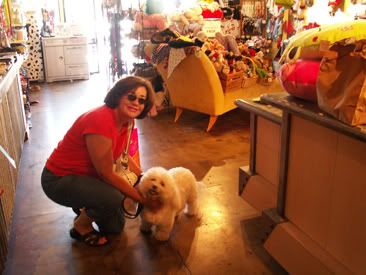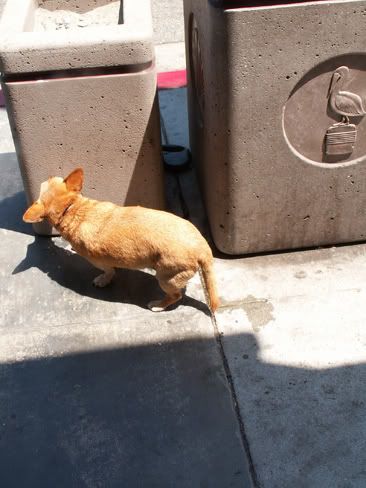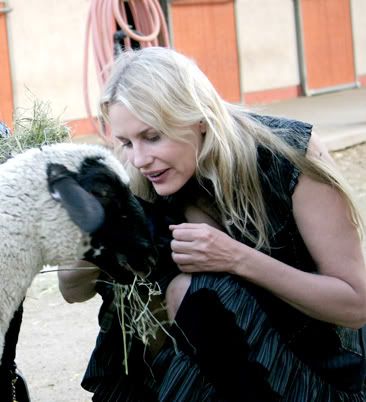This article is the first in a four-part series about Pet Overpopulation. The series is dedicated to all victims of pet overpopulation and the humans who care about them. We hope that this helps to pass forward the commitment to make every pet a wanted one.
Responsibility: The Ball’s in Your Court—Retrieve It!
We get at least one of them a day: second- or third-generation e-mails from people who have found kittens or puppies in the street, individuals facing foreclosure who have abandoned their pets, a dog who had been found wandering the neighborhood with what looked like a chemical burn on his back and was in need of a more loving home.
We run into families illegally selling trembling puppies or kittens out of cardboard boxes in front of supermarkets or bus stops (we’re not talking about the legitimate rescue groups, who aren’t selling the animals but adopting them to good homes); pet stores advertising “purebred” dogs that are actually the products of those chambers of horrors known as puppy mills; backyard breeders (illegal in Long Beach, by the way) who add to pet overpopulation by breeding the hell out of the mama dogs and selling them on the Internet, on posters tacked on trees and poles, and through the Pennysaver; people dumping their unwanted companions at our shelter because they were tired of caring for them. Cats, dogs, rabbits, birds, rats, snakes, ferrets, hamsters, mice—they all wind up in rescue groups that are already overwhelmed with other people’s discards and pressure put on them to take in unwanted pets, in shelters, or left to die on the streets or, in the case of cats, in feral colonies where they struggle as the new kid on the block or a meal for an urban coyote.
“Wednesdays are a circus [at the shelter],” said Judy Griffith, a volunteer at Long Beach Animal Care Services (LBACS) who focuses on rescuing rats, rabbits and other rodents. “The shelter’s closed Monday and Tuesday, and I go in there Wednesday and there are these entire family outings of ‘Let’s get together and dump our animals.’ It takes all I can do not to say anything.”
Heck of a lesson, by the way, to teach children that life is disposable and it’s okay to abandon the faithful dog or sweet cat at the shelter and skip blithely off to McDonald’s. It’s okay to expect volunteers like Griffith and everyone else on the batch-mail lists to get out their plastic gloves and blue baggies and pick up after the irresponsible, cruel and often abusive behavior done by human beings. So many unwanted pets, so few caring homes.
The Humane Society of the United States (HSUS) estimates that 6 million to 8 million cats and dogs enter shelters each year. Of this number, 3 million to 4 million are adopted, and owners come to claim the 600,000 to 800,000 who classify as lost pets. The totals include in-field pickups by animal control officers, feral cats, and people who sign off their pets. The rest—about 3 million to 4 million—lose their lives through euthanization. According to Theresa Chagrin, animal care and control specialist at PETA, these numbers do not include all the animals that die alone on the streets starved to death, hit by cars and at the hands of cruel people and never make it into the shelters. Cats outnumber dogs in euthanization, according to John Keisler, acting business manager at LBACS.
“The vast majority of cats that are impounded either do not have owners or are never claimed by their owners,” Keisler said.

Louis, a clean, loved dog with owner June Taylor.
Sadly, shelters don’t have the resources to care for every animal that comes in; furthermore, “no-kill” shelters are limited-admission shelters, as compared with open-admission shelters like LBACS. When a no-kill shelter is full, it often turns unwanted animals away. So, when owners do not want their animals anymore, they find frequently inhumane methods of getting rid of them. Pets may be abandoned, killed, thrown in their humans’ backyards for the rest of their lives with little to no care, or taken to an open-admission shelter, which becomes inundated with animals.
There have been numerous complaints about the numbers of animals that are euthanized in the shelter. We’re angry, too, but not at shelter staff. If anger is to be directed anywhere, it would be toward those who make shelters necessary—from people who don’t bother to spay and neuter their pets to a woman named Joyce Bernann McKinney, who is easily the most outrageous case we can think of. McKinney cloned her pit bull, Booger, in Korea and got five puppies out of the deal. In the news reports that followed, McKinney was alleged by be a burglar, a fugitive from justice, and a kidnapper who subjected a missionary to sexual enslavement. Not to mention, of course, a contributor to pet overpopulation. Her lawyer, by the way, is named David Crockett—and didn’t he kill a b’ar when he was only three? Seems like the wrong creature was given the name Booger.
One pet cannot be a substitute for another pet, nor can he or she be one for lovers or children; they deserve affection in their own right. We realize that we’re preaching to the Katzenjammer Choir when we say this, but nearly everyone knows people who keep animals and should not. If someone near and dear to you is considering an animal companion, remember that, like children, pets are responsibilities, not necessities, rights and privileges. (Come to think of it, the word child could be substituted for every instance of pet or animal in this list, but that’s a whole ’nother Oprah.) Here are some things to consider before you adopt your new best friend:
• Can you afford a pet? How many can you take in while maintaining quality of life for all of them as well as for your family? Can you pay for vaccinations, spay/neuter, medication? Can you afford a groomer, or are you equipped to do the grooming yourself?
• Have you considered all the special issues involved with a pet? Can you convince a cat not to claw the furniture without declawing him or her? Can the animal get along with children or other pets in the home? Will you be able to get professional training for behavior problems? Are you or a family member allergic to a certain species or breed? Are you willing to keep the cat or rabbit inside, and manage a litter box? Will you pick up your dog’s poop when you’re walking so that the rest of us won’t have to scrape it off our shoes?
• Pets are not teaching tools. They’re not meant to teach responsibility to children; instead, the child has to prove himself or herself responsible enough to have a pet. Will he walk the dog? Will she clean the litter box?
• Animals aren’t curriculum material, either. Your child wants to see the birth of an animal? YouTube has made that ubiquitously possible—go Google “birth of kittens” or “birth of puppies.” Then e-mail the originators of the film clip and tell them to get the animal spayed. Your child will do just fine if he or she doesn’t see an animal being born, and can learn about the joys of parenthood from you.
• Animals are not fashion accessories or home décor. So many of them get dumped in shelters or rescues because their would-be human companions saw a movie, needed such a dog, and didn’t research the breed for behavior or health issues. If you must have an Appenzell Mountain Dog or nothing, learn about the breed, and then go to petfinder.com and find a breed-rescue group (see what we mean about dumping specific breeds because of issues?). Check My Favorite Web Sites in this column for the link.
• Not everyone wants to rent to people with pets (we, of course, don’t understand this at all). Find pet-friendly apartments. And don’t sneak a pet into a place where they’re prohibited. You may find yourself looking for another place to live or, worse, there will be one more addition to the animal trash heap. Check out the feral cat colonies—a good number of the cats are dumps left to fend for themselves.
• Make sure you provide for your pet after your demise. Our governor has just made this a lot easier (scroll down and see the news release that follows the feral cat update story).
• If you’ve made a positive self-evaluation and aren’t intimidated by this frankly long and elaborate list—in fact, if it’s second nature for you to be responsible as well as loving—you’ll undoubtedly provide a safe, loving home for an animal. Now, make the adoption procedure a family affair. Visit shelters and animal rescues (stay away from pet stores, ads and people selling kittens and puppies out of boxes on the street for the reasons mentioned above). When you have made your choice (or your new friend has chosen you), everyone must agree with it and obviously love the new family member. And the love must be mutual. Then, make sure he or she is current on vaccinations and is licensed and microchipped. Get your pet an ID tag with a contact phone number (preferably a cell phone) and your pet’s new name on it, with no other information. Don’t forget the leash for your dog—we have a leash law in Long Beach and besides, it’s good for the dog’s safety.
• Lastly and most importantly, spay and neuter your pet, and let people know about low-cost spay/neuter. Report dumpers, abusers and backyard breeders who sell animals on the street. Pets aren’t livestock.

This dog was left outside with his leash unaffixed while his owner was shopping.
It often seems to us that pet overpopulation is a losing battle, but the collateral damages will be lessened if everyone educates someone else to the idea that animals are not expendable. They’re living beings with heartbeats, feelings and fears, and they’re commitments for life. The next articles in the series will look further at this commitment, and the people who believe in quality and not quantity of life for animals.
It seems like all my life I’ve shucked responsibility. I avoided getting married and having kids; I can barely even keep houseplants. To have a dog or a cat means the added expense of a vet if they ever got sick. What if I couldn’t afford it? It just wouldn’t be fair to them.
– Mitch Powell, Web designer and friend
Related Web sites
Long Beach Animal Care Services (click on the button for FAQs and About Us for more information on the dog-breeding ordinance, statistics and open/limited admission: http://longbeach.gov/acs/default.asp
PETA: www.PETA.org
Homes for Endangered and Lost Pets: www.helpinganimals.org
In the News
Bad Breath Won’t Kill You, but Will This Kill Your Dog?
In an e-mail generated in 2007, a product called Breathalyser made by a Canadian company called imRex was cited as being toxic because of an active ingredient. Breathalyser is a liquid additive that is put into pets’ drinking water to cut down plaque. bacteria and bad breath. The product contains xylitol, which is an additive to sugarless chewing gum. It’s safe for humans but it is said to kill dogs and cats. Because batch e-mails aren’t known to be reliable sources of information (how many e-chains have you broken, and has your hair fallen out yet?), we usually check everything out on www.snopes.com, a respected reference for questionable information usually reported through the Internet. A large number of the stories checked out on Snopes are found to be false, but this one was reported as true. Visit here for a full report and supplementary studies.
Ongoing Events and Adoptions
A TOY FOR EVERY ANIMAL The City of Long Beach Animal Care Services (LBACS) receives many requests for ways to volunteer to help the animals at our shelter. Currently, Animal Care Services is promoting the slogan “A Toy for Every Animal” to improve health and wellness. Chew toys like the Red Kong toys help keep animals’ minds and bodies engaged, leading to greater health and a higher rate of adoption.
HOW YOU CAN HELP The City of Long Beach Animal Care Services has implemented a new program for collecting all sizes of Red Kong toys for shelter dogs at LBACS. The irresistible chew toy is indestructible and safe. It can be easily cleaned and disinfected after each use.
PURCHASING A TOY Purchase all sizes of Red Kong toys directly here or at most pet stores. Either drop them off at LBACS, located on the same premises as the P.D. Pitchford Animal Shelter, or have them shipped directly to the following address:
Long Beach Animal Care Services
7700 E. Spring Street
Long Beach, CA 90815
Contact: Debra Brubaker, Public Health Associate (562) 570-7387
DONATIONS We are working closely with our registered rescue organizations, including the Friends of Long Beach Animals (FOLBA), to obtain toys for the dogs as well as the cats in the care of LBACS. Monetary donations to the Friends of Long Beach Animals’ will allow FOLBA to purchase Kitty Woofer balls for cats or the Red Kong toys for dogs. Send the check to:
Friends of Long Beach Animals
P.O. Box 92736
Long Beach, CA 90809-2736
Specify “dog toy” or “cat toy” on the memo line.
Hearts for Hounds
10:30 a.m.–1 p.m. every Sunday.
Alamitos Bay Marina Farmer’s Market, E. Marina Drive, just south of 2nd Street, Long Beach, CA.
To view adoptable dogs, volunteer or donate, visit heartsforhounds.com
Animal Match Rescue Team
10:30 a.m.–1 p.m. every Sunday
Long Beach Petco in the Whole Foods Shopping Center, 6500 E. Pacific Coast Highway, Long Beach, CA
To view adoptable dogs, volunteer or donate, visit amrt.net (Long Beach Small Dog Adoption).
Events
Aug. 23
Garage Sale to Benefit Prop 2
Let’s hold a garage sale and have it in the barn! Better yet, let’s send all the money we collect to the barn! Humane society volunteers will host a sale to benefit Proposition 2, the Prevention of Farm Cruelty Act, and all profits will go to Californians for Humane Farms for advertising to assist in the passage of the proposition. The sale will take place from 8 a.m. to 4 p.m. at 336 Grand Ave., Long Beach, 90814. Drop off any items for the sale during the week of August 18, and then bring your friends to shop! E-mail [email protected] for information.
www.YesOnProp2.org
Sept. 6
Animal Acres Gala
Animal Acres’ unique “cowtail party” begins at 5 p.m. for mingling with celebrity hosts such as Carol Liefer, Ed Begley Jr. and Darryl Hannah, and watching awards presentations. Then it’s off to the sanctuary rose garden to enjoy a gourmet vegan dinner with desserts, and then dancing until 11 p.m. All proceeds benefit the Animal Acres Emergency Rescue Fund and will build a 14-stall barn to house saved lives. Registration deadline is Sept. 1. $150 individual, $250 VIP. 5200 Escondido Canyon Rd., Acton, CA 93510, (619)269-5404
www.animalacres.com

2008 Gala Chair Darryl Hannah and Violet, courtesy Animal Acres.
Oct. 4
Interfaith Blessing of the Animals
The Interfaith Blessing of the Animals takes place at noon on St. Francis Day at Marine Stadium, Long Beach. The event is free to the public and their pets. Seniors, families, singles, and children are encouraged to bring their dogs, cats, birds, lizards, rabbits, pot-bellied pigs, fish, tortoises and turtles, and other well-behaved pets. After brief orations from each of approximately seven leaders of various faiths in raiment representative of his or her faith, the menagerie of participants will have the opportunity to line up single-file to be blessed by any or all of the clergy. Olive branches and holy water will be available.
www.HauteDogs.org
Oct. 26
Haute Dog Howl’oween Parade and Pet Adoption Fair
See Pumpkin Pups, Masked Meowvels, Pirate Parrots and all the critters out for their own trick or treat. The parade starts at 2:30 p.m. on the sidewalks of 2nd Street. Pre-parade entertainment, vendors and adoption fair will be held at Livingston Park, Belmont Shore and will run from 11 a.m. to 5 p.m. It’s the biggest Halloween pet event in the world! Presented by HauteDogs.org and Justin Rudd. (You might want to stay for the huge Kids’ Halloween Costume Contest at 4:30 p.m!)
www.hautedogs.org
Please e-mail any Long Beach-area animal-related events to [email protected].
